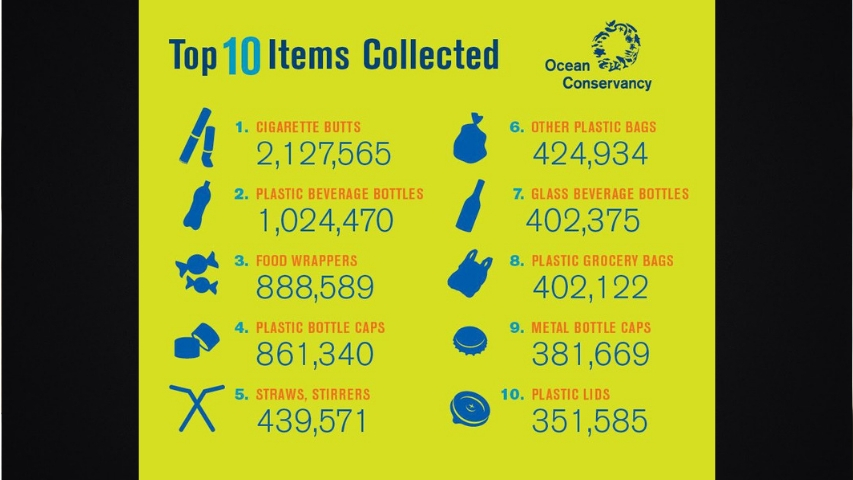-853X543.jpg)
Cigarette Butts are not just killing you, but the Environment too
by Shruthi Venkatesh January 29 2019, 1:46 pm Estimated Reading Time: 3 mins, 28 secsPlastics are finally being recognised as the major pollutant in use and have resulted in ban in many countries as of now. Yet another, bigger problem is of the cigarette filters which cause more harm to the environment.
A cigarette filter is a component of a cigarette, along with cigarette paper, capsules and adhesives. It does not make cigarettes less unhealthy. The filter may be made from cellulose acetate fibre, paper or activated charcoal. By itself, cellulose acetate is very slow to degrade in our environment. Depending on the conditions of the area the cigarette butt is discarded in, it can take 18 months to 10 years for a cigarette filter to decompose. Used cigarette filters are full of toxins, which can leach into the ground and waterways, damaging living organisms that come into contact with them. Most filters are discarded with bits of tobacco still attached to them as well, further polluting our environment with nicotine, which is poisonous.
Thousands of smokers don't think twice about leaving a trail of cigarette litter behind them. According to Keep America Beautiful (KAB), Americans are smoking fewer cigarettes than ever before, yet cigarette butts continue to be the most commonly littered item in the United States and around the world today. “Many smokers assume the filters are made of a biodegradable material,” says Elizabeth Smith, who works on tobacco control policy at the University of California San Francisco.

Coastal cleanup - Top 10 items collected (Explore Ecology)
Now, the European Union is coming up with techniques and rules in cleaning up the cigarette stubs, as part of a broader initiative to reduce single-use plastic items.
CNN reports that about 6 trillion cigarettes are manufactured a year and over 90% of them contain plastic filters. That’s more than one million tonnes of plastic. According to the World Health Organization, “Tossing a cigarette butt on the ground is one of the most accepted forms of littering”. Cigarette butts have been the number one item collected by the Washington DC-based Ocean Conservancy's global beach clean-ups every year since the initiative started in 1986. Its volunteers have collected more than 60 million butts. About two-thirds of butts are dumped irresponsibly - stubbed out on pavements or dropped into gutters, from where they are carried via storm drains to streams, rivers and oceans.
Cigarette filters turn to be the threatening environmental issue today. A recent study placed fish in water in which cigarette butts had been soaked and removed. After four days, half the fish had died, showing that cigarette butts “seep in into the aquatic environment and are toxic and deadly to living creatures,” says Thomas Novotny, emeritus professor of global health at San Diego State University, who was involved in the study.
In October 2018, the European Parliament backed a radical proposal to oblige EU countries to remove 50% of plastic from cigarette filters by 2025, and 80% by 2030. However, EU country representatives later rejected these reduction targets. Instead, tobacco companies will be made responsible for funding awareness-raising campaigns, the provision of public ashtrays and waste collection, and will have to add labels to packets of filtered cigarettes. Meadhbh Bolger, resource justice campaigner at Friends of the Earth, says the new laws are “a significant first step” but believes that governments should go beyond these measures and set binding targets. “We hope that governments will realize that having a planet we can live on is more important than the interests of the tobacco industry,” she says.
Everything about cigarettes threatens life on our beloved planet. They pollute the ground we walk on and the air we breathe. And if we smoke, cigarettes poison us slowly, stealing our quality of life long before they kill us. Smokers could do their part by taking steps today, to put that last cigarette out and move on. Of course, the recovery from nicotine addiction takes some hard work early on, but with support and a plan, one can leave the smoking habit behind for good - both for health and the environment.




-173X130.jpg)
-173X130.jpg)
-173X130.jpg)
-173X130.jpg)
-173X130.jpg)
-173X130.jpg)
-173X130.jpg)
-173X130.jpg)